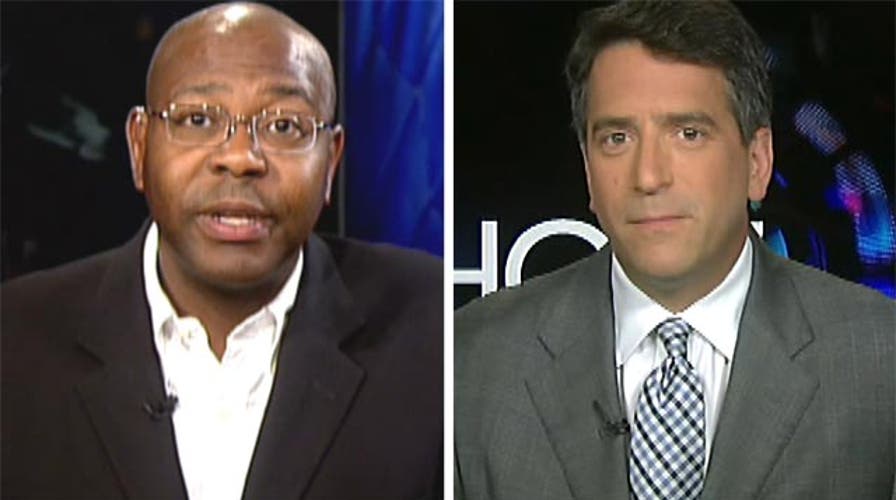The Foxhole: WSJ's Jason Riley on Obama, race and politics
Does government make it harder to achieve the American dream?
For the month of June, the federal Bureau of Labor Statistics recorded an unemployment rate of 5.5 percent for white Americans, and 11.1 percent for African-Americans.
Why is this?
For decades, well-intentioned policymakers, academics, activists, and advocates have devoted great attention to such disparities between black and white citizens, which are discernible in education, employment, basic health issues, and various other key social metrics. Back in 1965, the late Daniel Patrick Moynihan published his famous Moynihan Report, more formally known as The Negro Family: The Case for National Action, wherein the future U.S. senator lamented the “tangle of pathology” afflicting black families.
While many have cited the residual effects of slavery, the demoralizing effect of the killing of Martin Luther King, Jr., or other factors, Jason L. Riley, the Wall Street Journal editorial board member and Fox News contributor, himself African-American, finds fault with the very political group to which most African-Americans informally belong.
In his new book Please Stop Helping Us: How Liberals Make It Harder for Blacks to Succeed (Encounter Books, 2014), Riley argues that the Great Society programs of Lyndon Johnson’s and Daniel Moynihan’s time, extended and perpetuated through an ever-growing bureaucracy in Washington, have worked to the opposite of their intended effect, indeed, have contributed decisively to the dismal numbers enshrined on the Bureau of Labor Statistics website.
In making such a case, and because of his race, Riley said in a recent visit The Foxhole, he has been insulted and ostracized. “Name-calling, mostly,” he said he receives, before adding: “You either get ignored or you get called names.
“I often say that black conservatives, in particular, get put on the couch. We get psychoanalyzed: ‘Self-hating,’ ‘Uncle Tom,’ that sort of thing. You know, white conservatives are simply wrong, but black conservatives are sellouts.”
Riley suggested that the motivation for such treatment was to avoid uncomfortable truths about the Great Society and the legacy of the civil rights movement. “You get that sort of response when you’re not completely ignored altogether. And I think one of the reasons you get that response is that – it involves the person making the accusation. It allows them to avoid your actual argument. If you can dismiss someone as psychologically challenged, as a mental case, you don’t have to deal with what they’re saying.”
In his visit to The Foxhole, Riley also discussed President Obama and Attorney General Holder, Jesse Jackson and Al Sharpton, and the state of the civil rights movement today.

